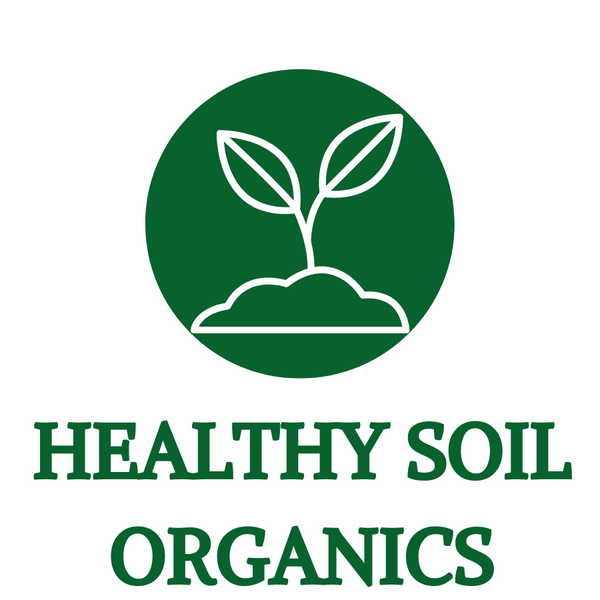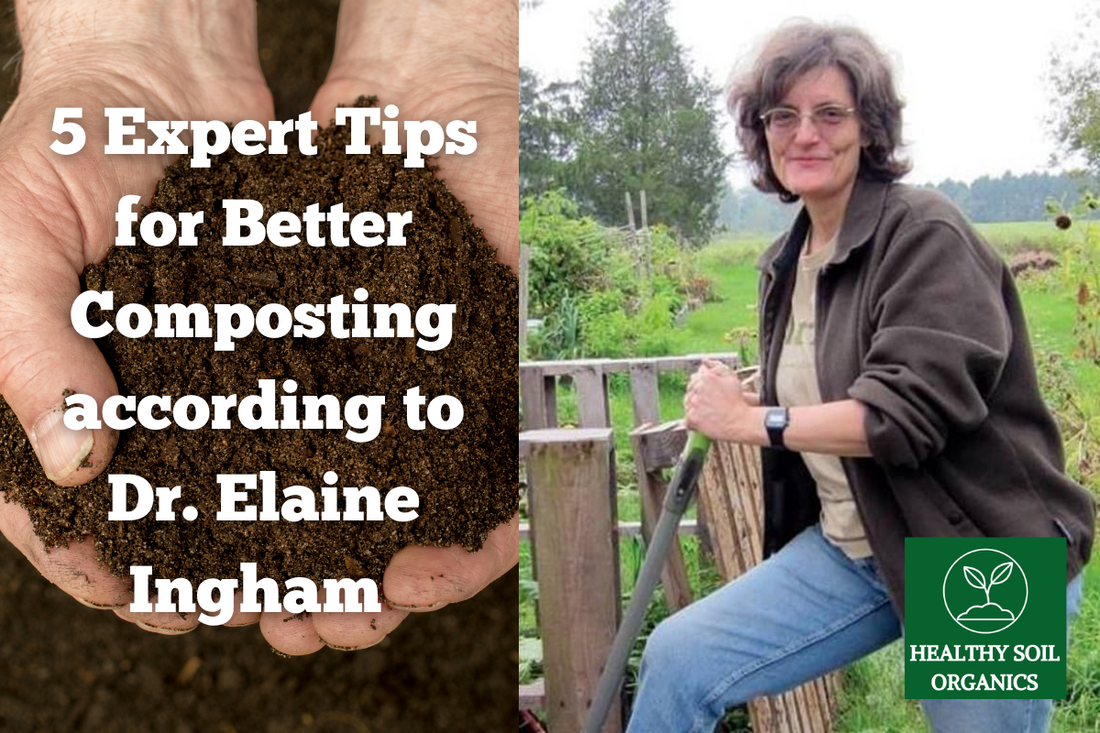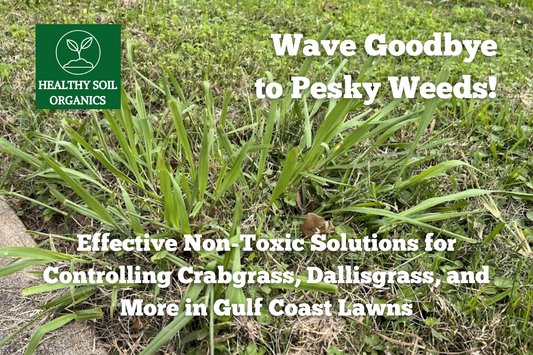Composting is a great way to turn food waste and yard debris into nutrient-rich soil for your garden or plants. However, not all composting methods are created equal. To help you get the most out of your compost, here are 5 tips from Dr. Elaine Ingham, one of the world's most experienced soil biologists and a composting expert. Read to the end to find out how you can learn Dr. Elaine Ingham's strategies at an in person event right here in Houston coming in April 2023.
Let's First Explain Composting in a Nutshell
Before we dive into the 5 tips for better composting, let's first take a look at how Dr. Elaine Ingham recommends you build a compost pile. According to Dr. Ingham, the key to creating a healthy compost pile is to achieve a balance of carbon and nitrogen-rich materials.
Carbon-rich materials such as leaves, straw, and wood chips provide the energy and structure for the microbes to thrive. Nitrogen-rich materials such as kitchen scraps, grass clippings, and manure provide the necessary nutrients for the microbes to break down the carbon-rich materials.
Dr. Ingham recommends starting your compost pile with a layer of carbon-rich materials, followed by a layer of nitrogen-rich materials. Continue layering the materials, ensuring that each layer is moist but not too wet, until the pile reaches a height of about 3 to 5 feet.
Once your compost pile is built, you can follow the 5 tips below to help you create nutrient-rich compost for your plants.
Now the Tips
-
Understand the Importance of Microbes: Dr. Ingham emphasizes the importance of microbes in the composting process. Microbes such as bacteria, fungi, and protozoa are essential for breaking down organic matter and releasing nutrients into the soil. To encourage microbial activity in your compost, Dr. Ingham recommends adding a diverse range of materials, including kitchen scraps, grass clippings, and leaves.
-
Add Amendments: Adding amendments such as rock dust, bone meal, or wood ash to your compost can help balance the nutrient content and pH level of your compost. Dr. Ingham recommends testing the pH of your compost regularly and adjusting it as needed. A pH of 6.5 to 7.5 is ideal for most plants.
-
Monitor Moisture Levels: Composting requires a balance of moisture to keep the microbes active and thriving. Dr. Ingham suggests monitoring the moisture levels of your compost regularly and maintaining a moisture level of around 50 to 60%. If your compost is too wet, add dry materials such as leaves or straw. If it’s too dry, add water.
-
Turn Your Compost: Turning your compost is crucial to ensuring that all materials break down evenly and efficiently. Dr. Ingham recommends turning your compost every 3-7 days. This will help aerate the compost and provide the microbes with the oxygen they need to thrive.
-
Let it Rest: After your compost has been turned for several weeks, it’s time to let it rest. Dr. Ingham suggests letting your compost rest for 2-3 weeks before using it in your garden. This will allow any remaining materials to break down fully and give the microbes a chance to stabilize before being introduced to your plants.
By following these tips from Dr. Elaine Ingham, you can create a nutrient-rich compost that will provide your plants with the vital nutrients they need to thrive. Remember, composting is an ongoing process, so don’t be afraid to experiment with different materials and methods to find what works best for you. Happy composting!
We are Proud Sponsors of

If you're interested in learning more about Dr. Elaine Ingham's composting strategies and want a hands-on experience, you're in luck! Dr. Ingham will be coming to Houston for a two-day seminar titled "A Soil Foodweb Extravaganza" on April 14th and 15th, thanks to the Organic Horticulture Business Association (OHBA). To register for this event and learn more about the finer details of composting, visit http://ohbaonline.org/register. Don't miss out on this unique opportunity to learn from one of the leading experts in the field!




